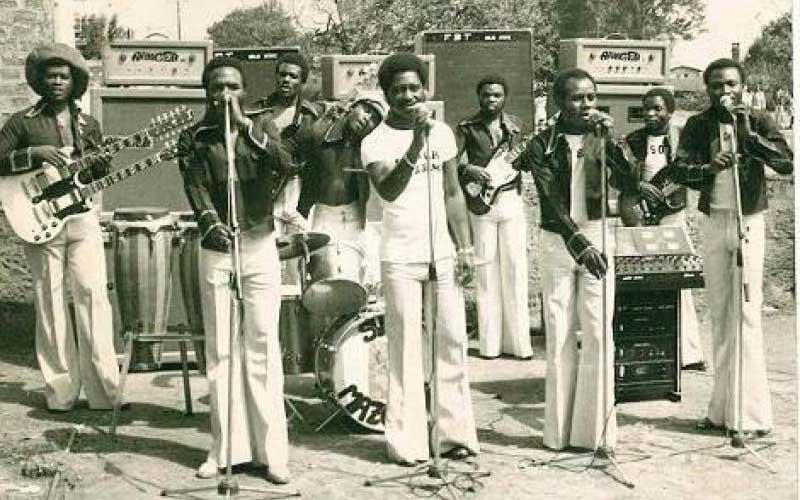×
The Standard e-Paper
Fearless, Trusted News

From Left: Longwa Didos, Kasongo wa Kanema, Lovy Longomba, Bukalos wa Bukasa and Athia Djo, of Super Mazembe Band, at Lasco Club Mombasa during the group's heyday. The five have since died. [Photo, Courtesy]
Lingala music fans are still reeling in shock following the demise of popular locally based Congolese musician Kasongo wa Kanema, the third leader of Super Mazembe band.